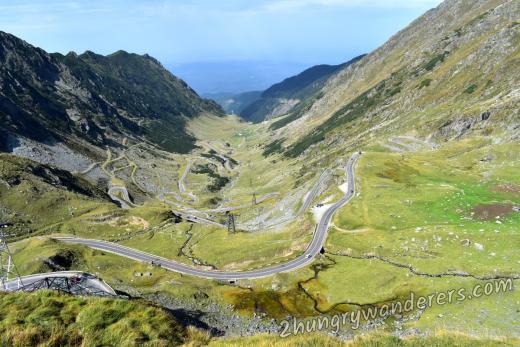
The Transfagarasan Highway (DN7C - Drumul National 7C - National Road 7C) is a mountain road in Romania that crosses the Southern Carpathians (aka Transylvanian Alps) and connects the regions of Wallachia and Transylvania. It is an amazing driving experience thanks to its numerous hairpin turns, steep climbs, viaducts and last but not least the longest tunnel in Romania. On top of the amazing natural sights, it also gives you the opportunity for some cultural and historic stops along the way, making it one of the most popular attractions in Romania.
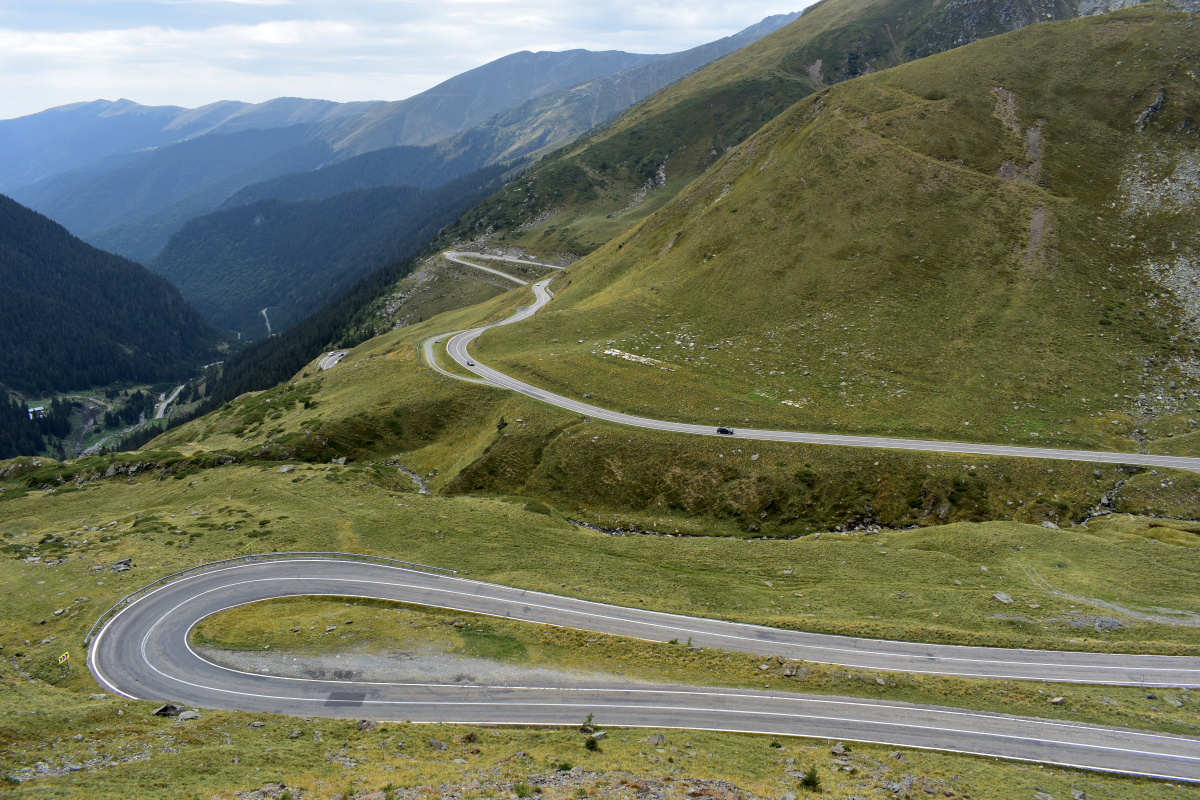
Every article about the Transfagarasan reminds the reader that in 2009 the Top Gear host Jeremy Clarkson called it "the best road in the world", I'm not going to disagree, just want to mention another, probably more relevant to some reference. For the NFS fans driving there will feel familiar, as the game Need for Speed: The Run includes a mission on a section of the road, the track in the game has the road widened (to give space for drifting) and with added stone walls. An even better and mostly accurate representation of the Transfagarasan with great details can be seen in a cutscene from Need for Speed: Hot Pursuit.
Some history (mixed with legends and speculations)
Let's start with the facts. The road was built between 1970 and 1974 by direct orders from Nicolae Ceausescu. Reportedly the rushed project included the use of 6 million kilograms of dynamite (in most movies several kilos are enough to blow up a whole building). Due to various factors, including zero experience with explosives and bad working conditions, the official reports state that about 40 people lost their lives during the construction. The real numbers are suspected to be many times higher, most likely Romania lost hundreds of soldiers there.
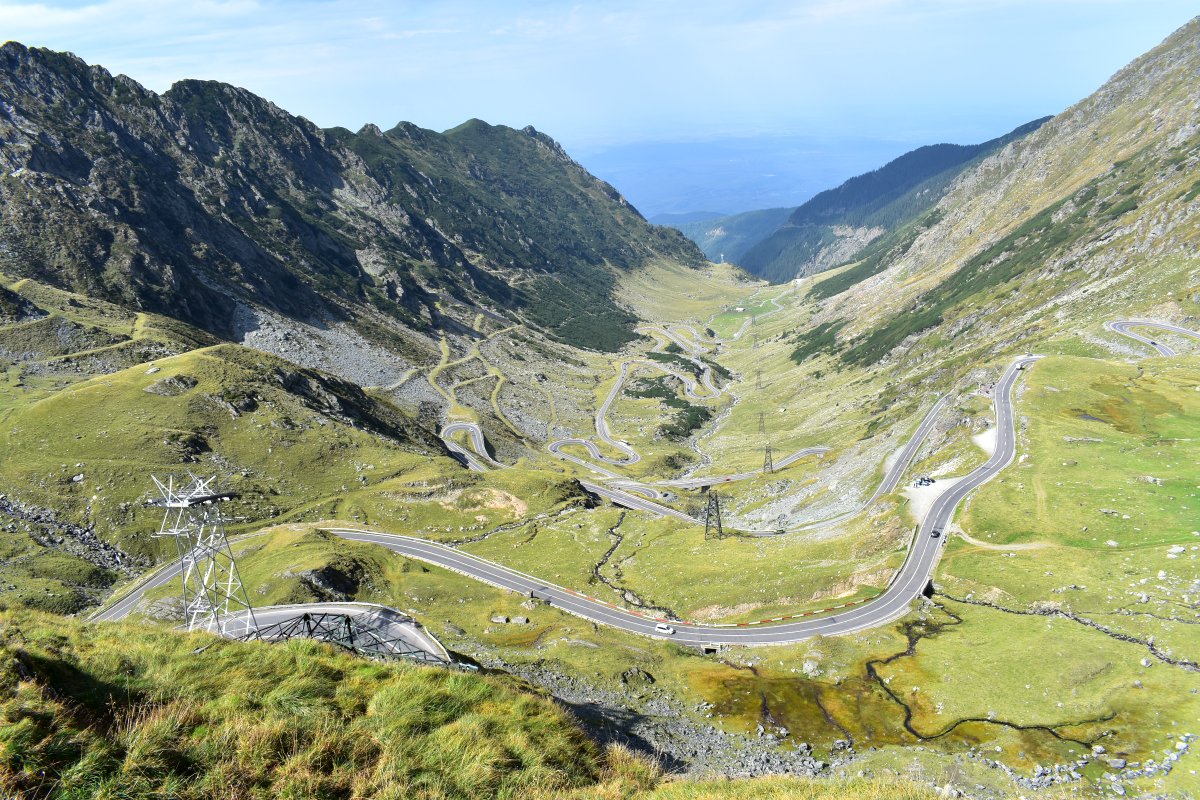
The most popular theory behind building this road is Ceausescu's fear that USSR was going to invade Romania after the 1968 invasion of Czechoslovakia. The road would allow troops and machinery to be moved between north and south Romania to counteract such invasion.
One of the many problems with this theory is that before building the Transfagarasan there were good enough roads crossing the mountain nearby and in good condition already. Another important point is that the road doesn't actually offer neither fast nor efficient route for the army - it is narrow, steep, winding and just unusable for the better part of the year. Many blame this project on communist dictator's pride and desire to demonstrate power, even by building a mountain road as a status symbol, also his name is often used in the same sentence with words like "megalomania" and "grandomania".
A strategic move or a grandiose vanity, either way, many locals call the Transfagarasan Highway "Ceausescu's Folly".
Planning your trip
The road is closed for the winter season, which varies each year but usually, the snow falls in October-November and stays there until June. Technically the road is closed from dusk till dawn, but nobody really enforces this restriction, although it is good advice at least - in the dark the road will be more dangerous and all the great views will be hidden.
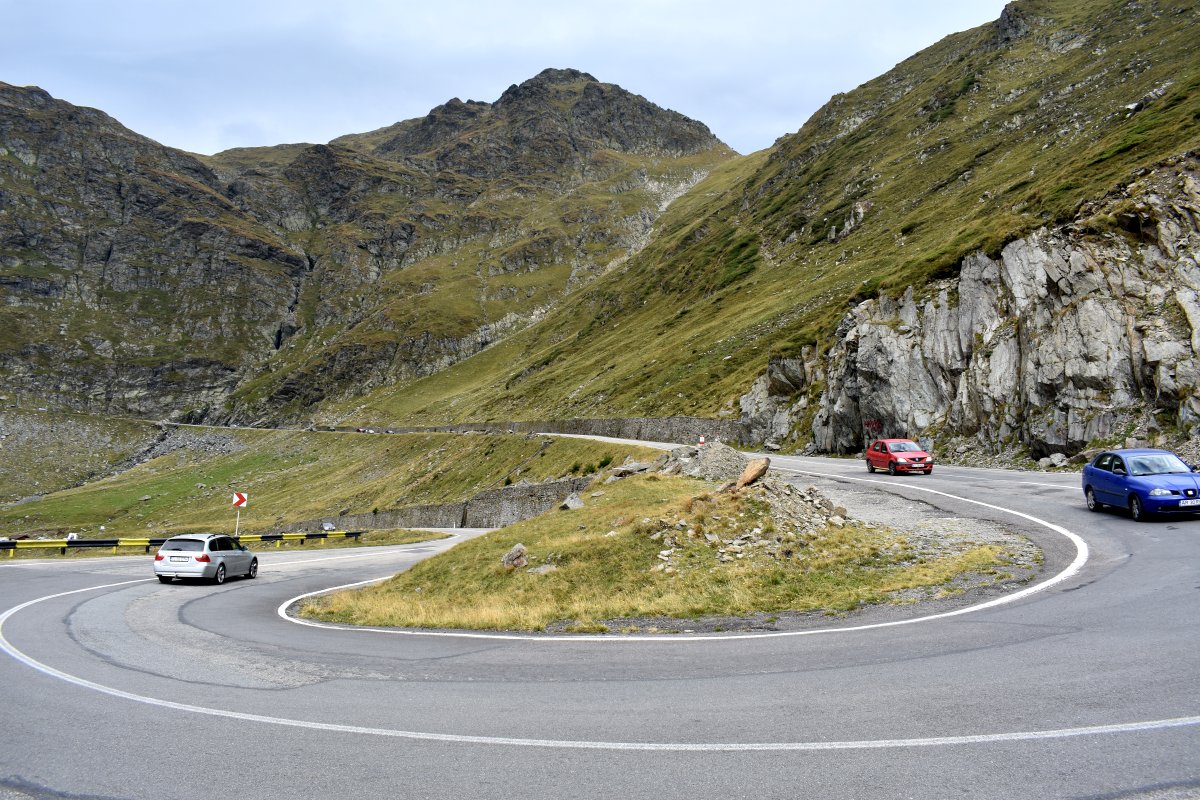
If you decide to travel the whole distance from Bucharest to Sibiu, Fagaras or Brasov (in either direction) in one day - it is doable, around 6 hours driving, but I would recommend shortening it by replacing Bucharest with the small town of Pitesti. We did it this way and we're glad to have almost 2 hours less driving for the day and more time to enjoy the experience.
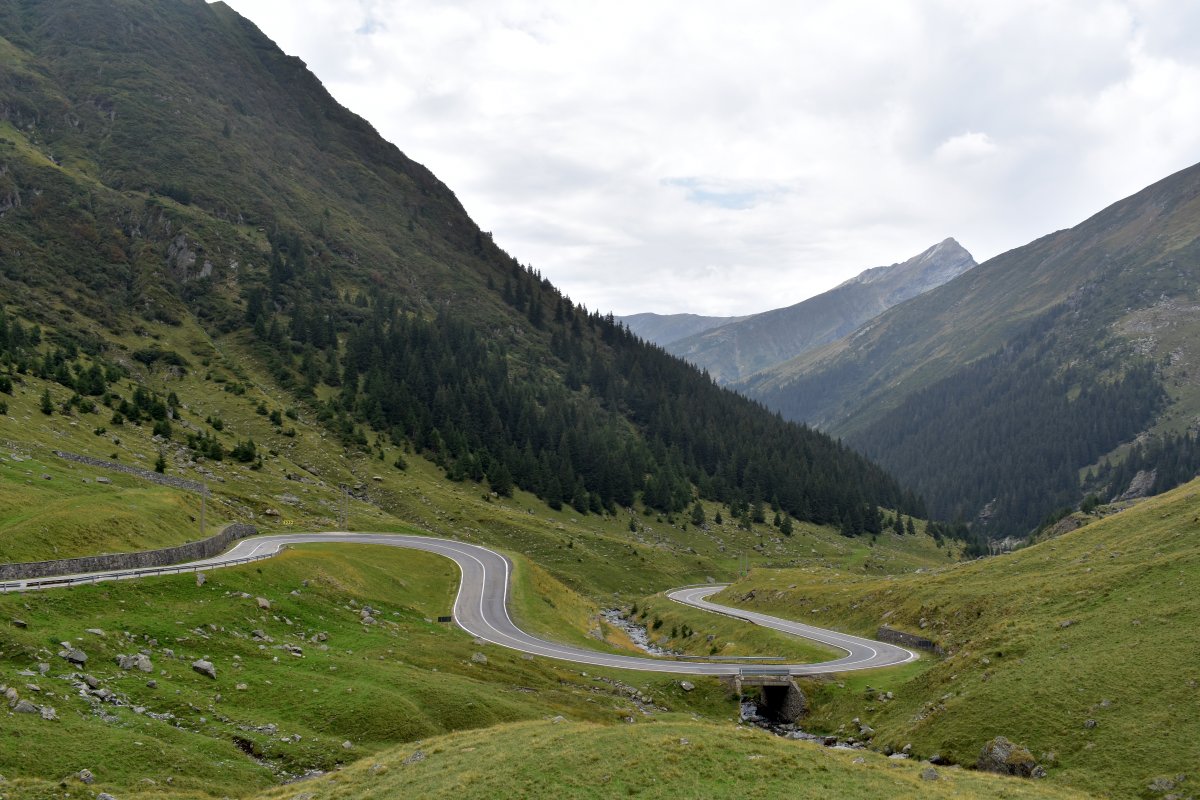
To the minimum of four hours on the road add at least four more for all the sights, so give the Transfagaras road a whole day and it will be a day to remember! Also, don't forget to bring a jacket even in mid-summer - the road climbs up to 2042 meters, in the open mountain this translates as "cold and windy" any day of the year.
The drive
We started our journey early in the morning from Pitesti with Sibiu as a final destination for the day, here are the stops we made along the Transfaagarasan road in order of appearance in this direction.
Curtea de Arges Monastery

In about 40 km from Pitesti is the first stop, the monastery in Curtea de Arges which is actually a large park containing several buildings and well-maintained gardens, a good place for a relaxing stroll. Many important historical figures were buried there, including King Carol I and Queen Marie, also in present days, the monastery is the religious center of the region. The most important and noticeable building is the Cathedral of Curtea de Arges, the Romanian Orthodox cathedral is built between 1512 and 1517 in the Byzantine style and is famous for a couple of twisted towers atop the entrance. Many legends regarding the cathedral still live today, one of the popular ones is that almost all materials were stolen borrowed from an ongoing mosque construction in Constantinople and brought all the way to Romania.
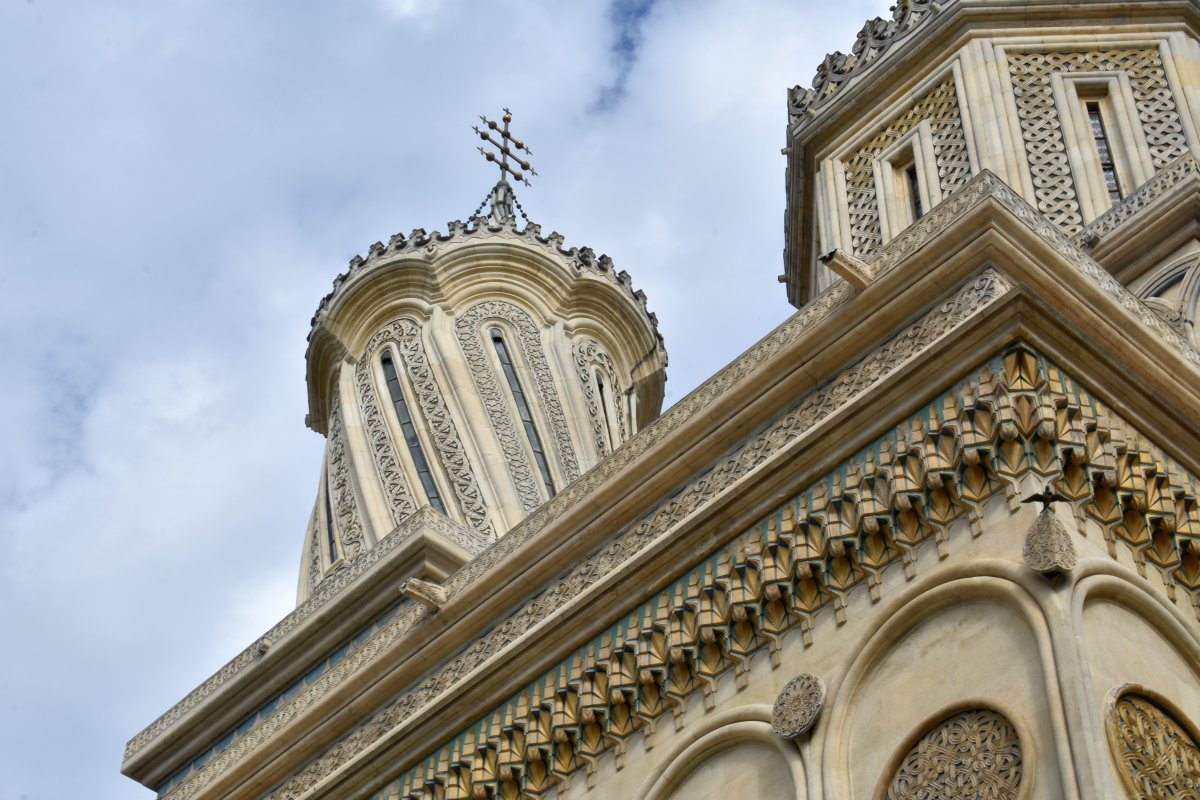
Another, darker legend is about the builders of the cathedral, headed by master builder Manole. For some mysterious reason, all that was built during the day crumbled overnight. The prince who ordered the cathedral was not happy with the progress of the project and threatened the builders' lives. Pagan beliefs dictate that in such situation a woman must be sacrificed and walled up in the building. All the builders decided whoever's bride shows up first in the morning will be sacrificed. Unfortunately for Manole, it was his young, beautiful and pregnant bride, who as per the agreement the builders entombed alive in the walls. Of course, this kept the stones together and they were able to finish the building in time.
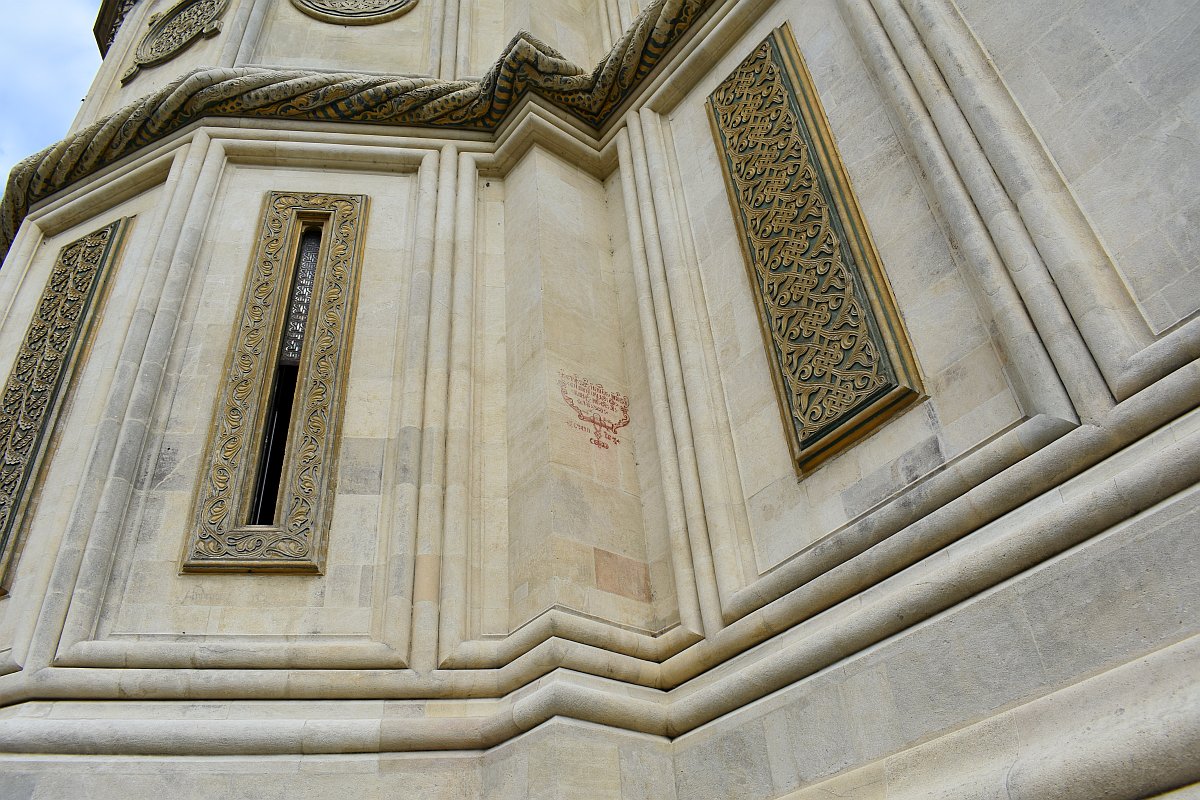
Today a blood stamp marking the place where Manole's wife is can still be seen on the wall. A very interesting example of how a pre-Christian superstition keeps a Christian church together - according to old beliefs if the blood stamp is wiped the building will fall.
Poenari Citadel
26 km further up the road is Poenari Citadel (Poenari Castle) - the real Castle Dracula. To clarify - Bran Castle is what is portrayed as Bram Stoker's Dracula novel and admittedly he spent some time there, but Vlad III the Impaler's (the historical figure) main fortress was Poenari. In the 15th century, he found it abandoned, then restored the citadel and turned it into the backbone of his defence, later the castle was abandoned again.
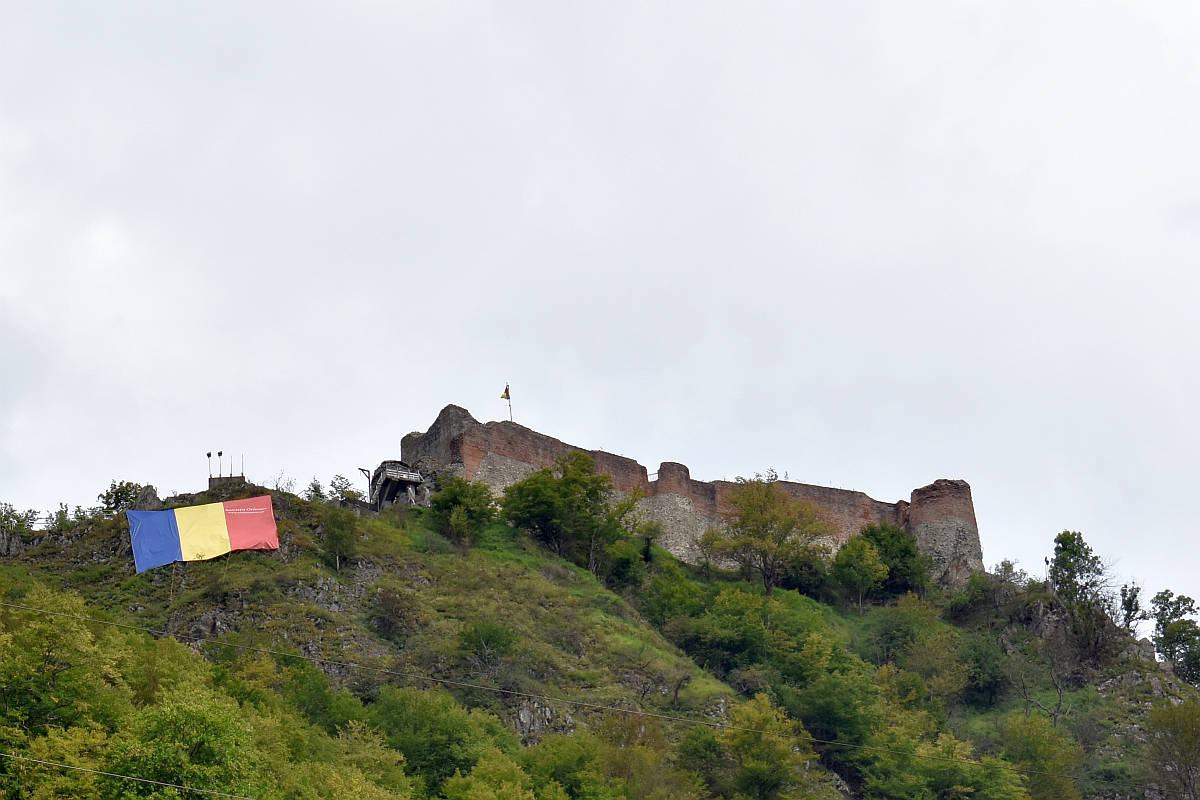
In September 2018 the only times visitors are allowed to go up the infamous 1480 steps to the citadel are 10 am and 3 pm, unfortunately, we missed the morning and didn't want to wait 4 hours, so we saw the real Castle Dracula only from the road, still impressive even after so many centuries and from afar.
Vidraru Dam
Up to this point, the road is a bit boring, but after the Poenari Citadel things start to get exciting. In about 2 km we hit the first hairpin turn, shortly after is the first tunnel and very soon a second tunnel ends at Vidraru Dam, 4 km from the citadel.
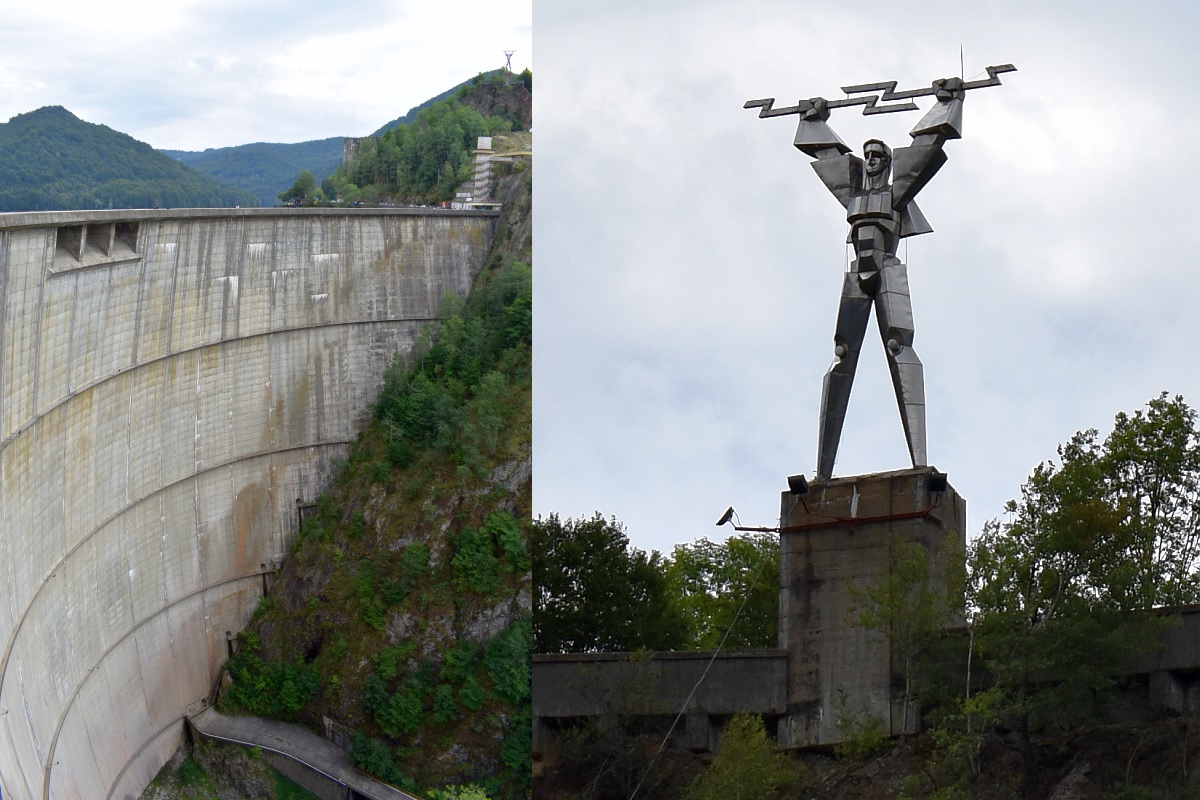
The dam was completed in 1966, a true monument of communism. The 166 meters high wall is an impressive sight in itself, the lake Vidraru on the other side is a calm and quiet place, to truly enjoy it go for a boat ride. The main purpose of the dam was to produce electricity and at the time it was built it was one of the largest in Europe. Fittingly, the dam wall is crowned with a statue of Prometheus holding lightning bolts, to me, it looks less like a Greek god and more like a chromed Autobot, but that's even more awesome.
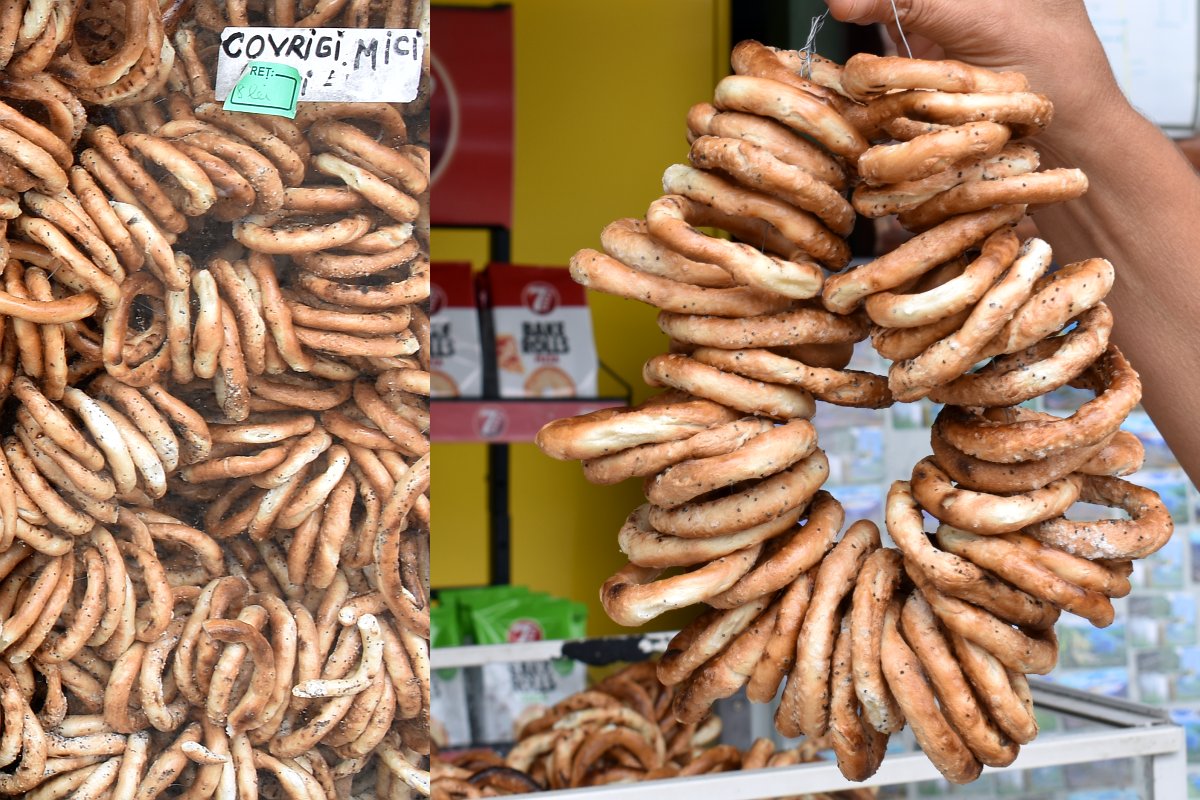
If you are getting hungry grab some covrigi - round baked goods similar to pretzels, usually topped with salt and maybe some seeds - great snack for the road.
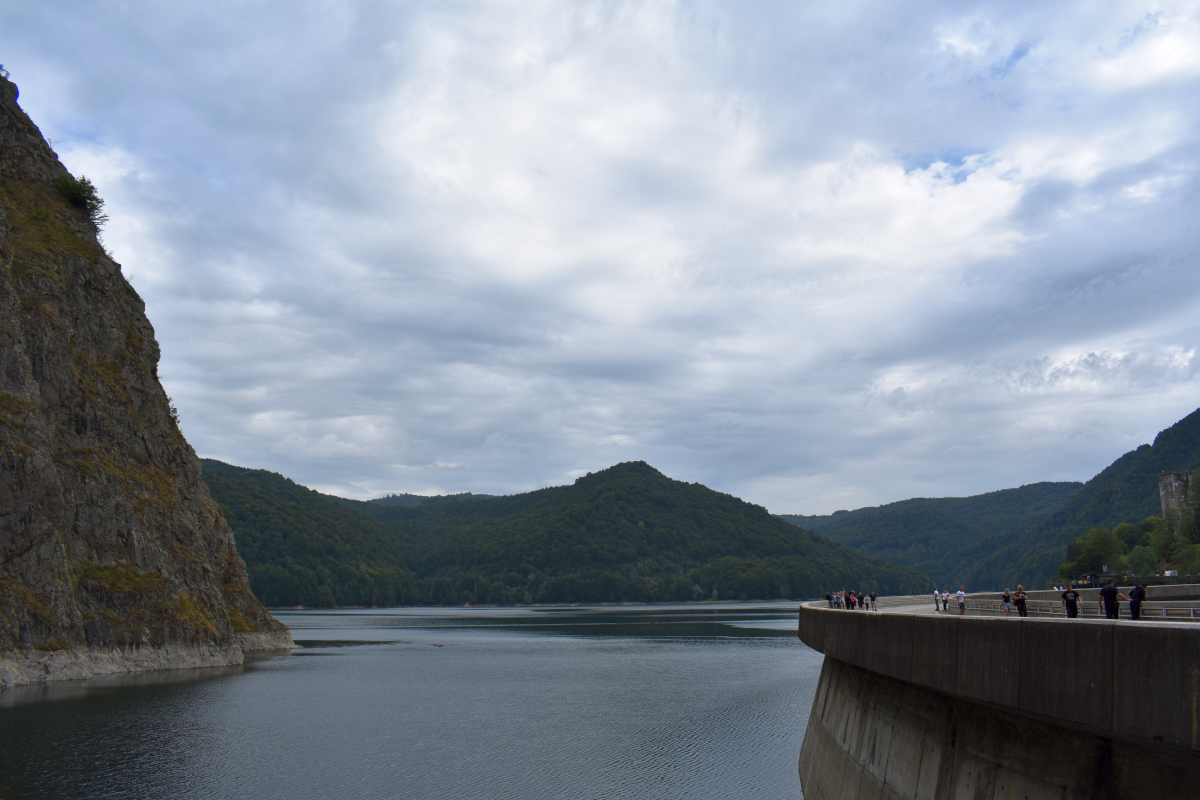
After the tunnel the road splits and gives you the opportunity to choose which side of the lake to drive on, eventually they merge at the other end. My advice is to stick to the main road which is on the right side and goes over the dam wall, the left is poorly maintained and doesn't offer any advantages.
Waterfalls, viaducts and high mountain sights
As we drove up the mountain the small villages gave way to the occasional sheep herd and the pine forest gradually disappeared, leaving large grass fields cut by streams, waterfalls and the road.
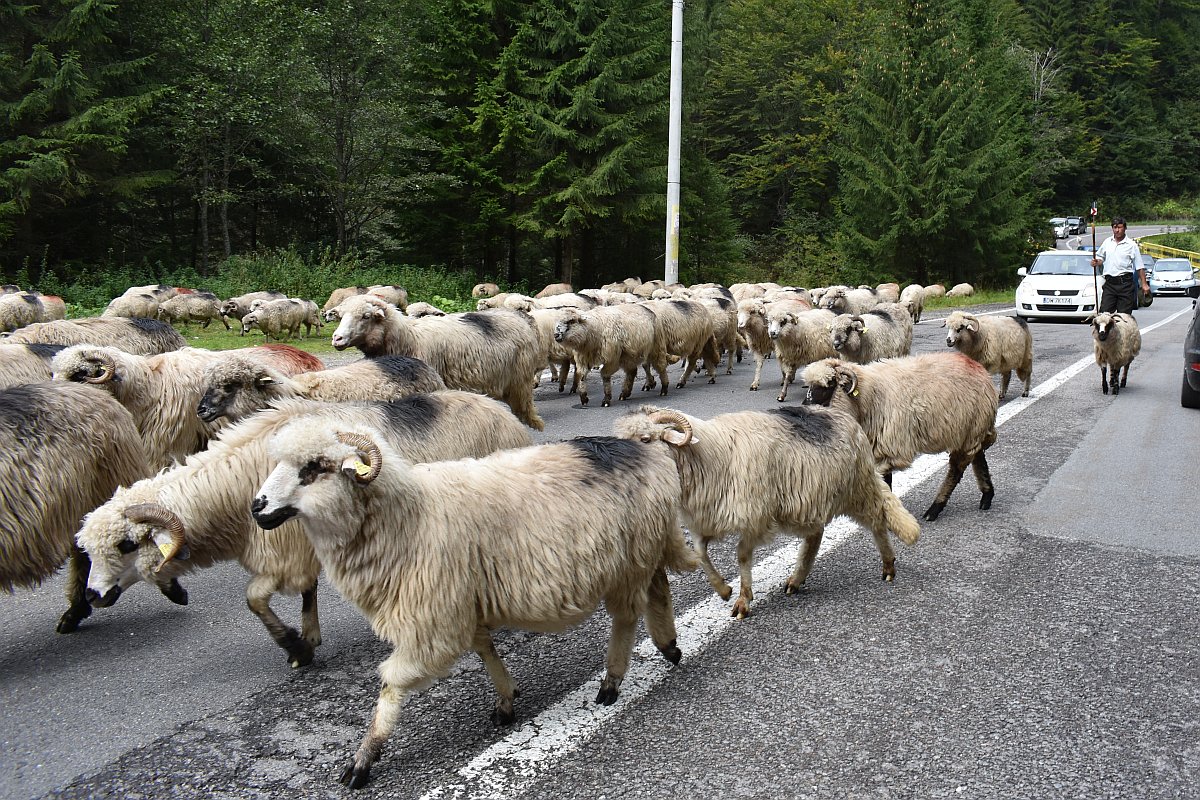
More hairpin turns and more photo opportunities follow, we wanted to stop at every corner, but tried to resist and skip at least some, of course, the higher you climb the better the views.
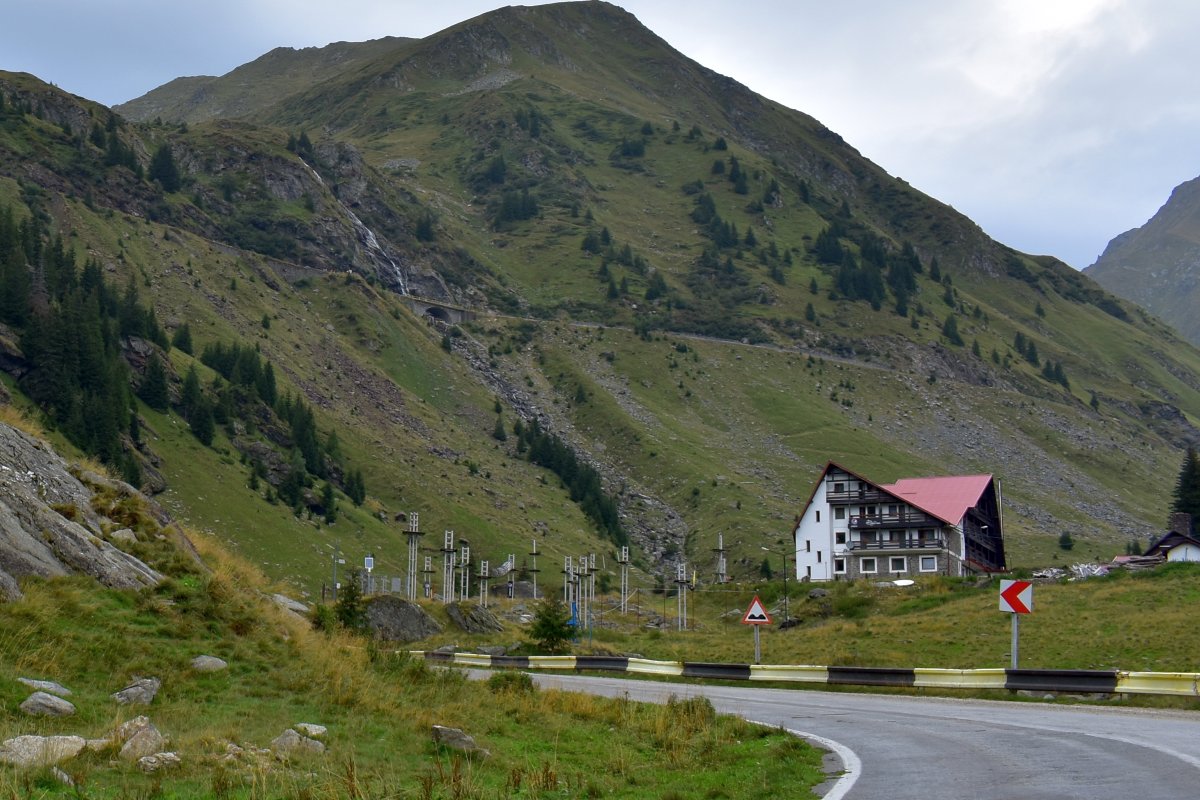
A good place for a stop is near a small waterfall where several stalls with local produce tempt travellers with homemade cheese, sausages, breads and desserts, you can't miss the garden umbrellas and the many cars parked on the road nearby.
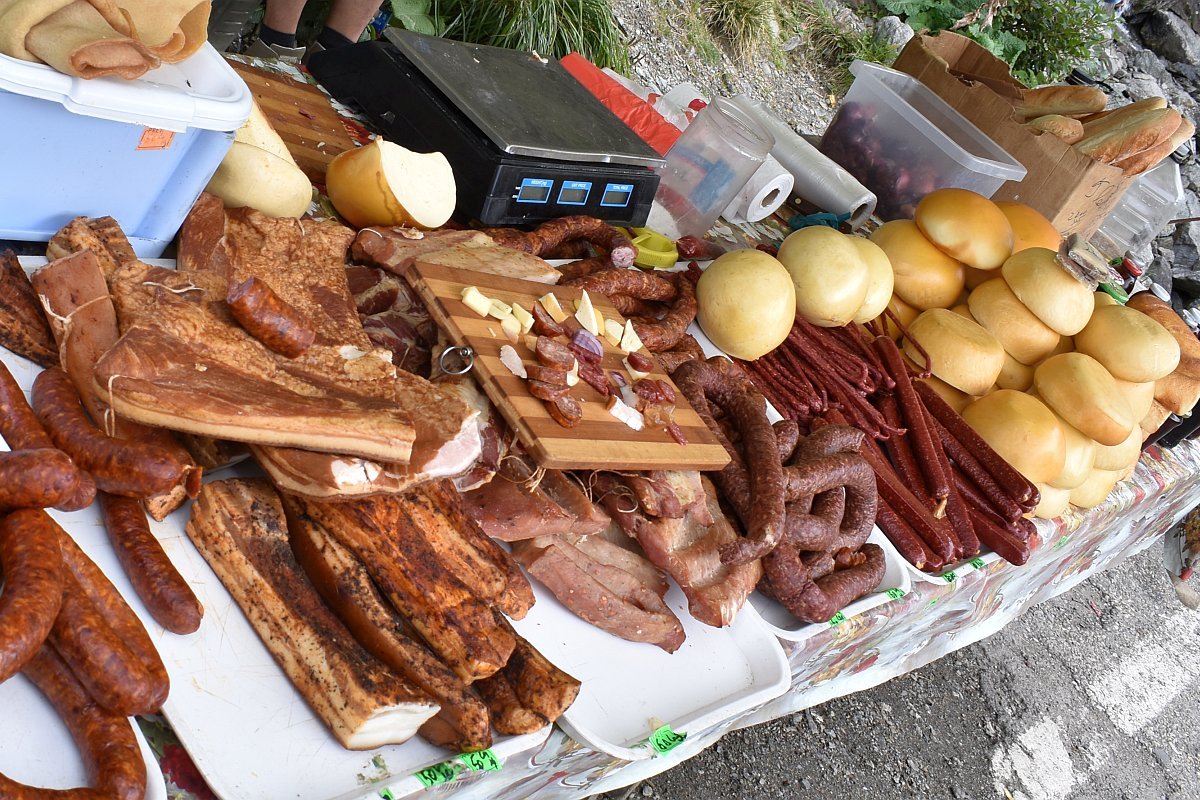
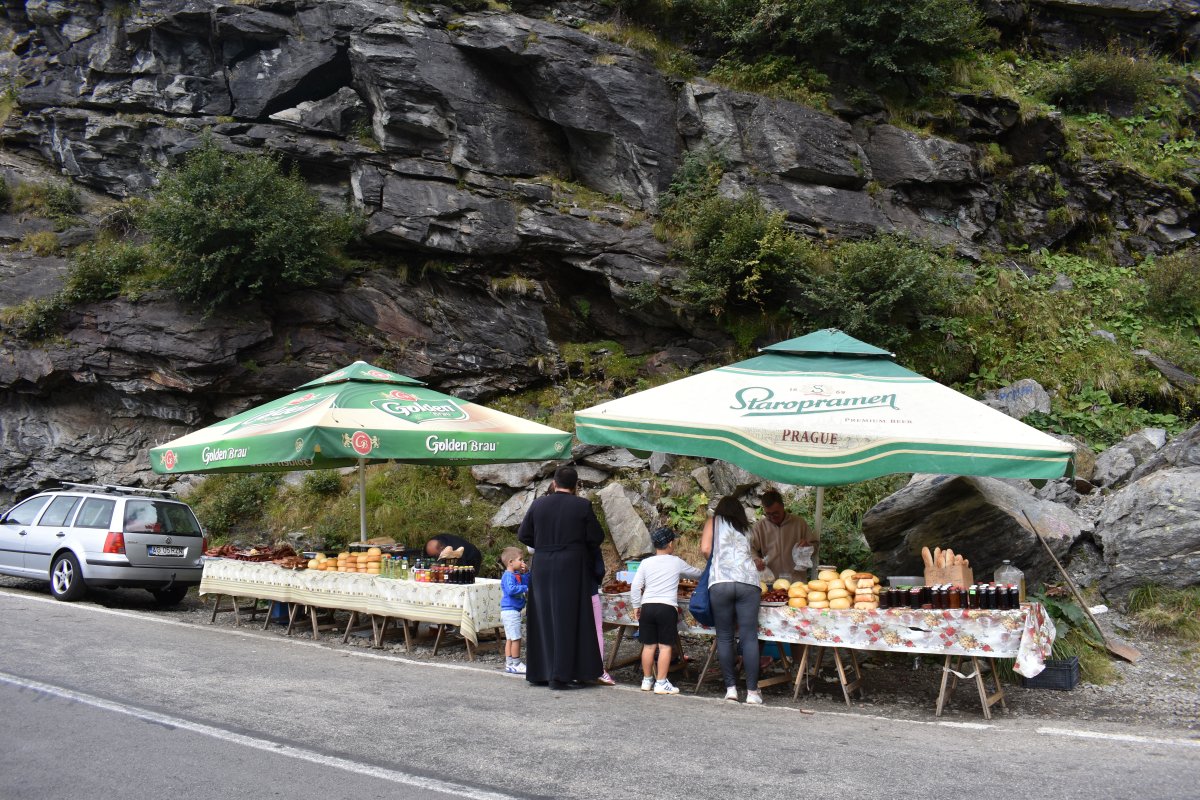
Lake Balea (Balea Lac) and the top of the mountain
After the 55 km from Vidraru Dam, which took us about two hours with all the stops, we reached the famous Capra Tunnel - 884 meters long and carved through the hard rock at an altitude of 2040 meters. This damp and dark man-made cave is the highest point of the Transfagarasan Highway. After the tunnel, it is a whole new world, but the first thing we noticed was that we were in a market with parking lots on the side. Find a place for your car as you will not want to miss the most important stop for the day.
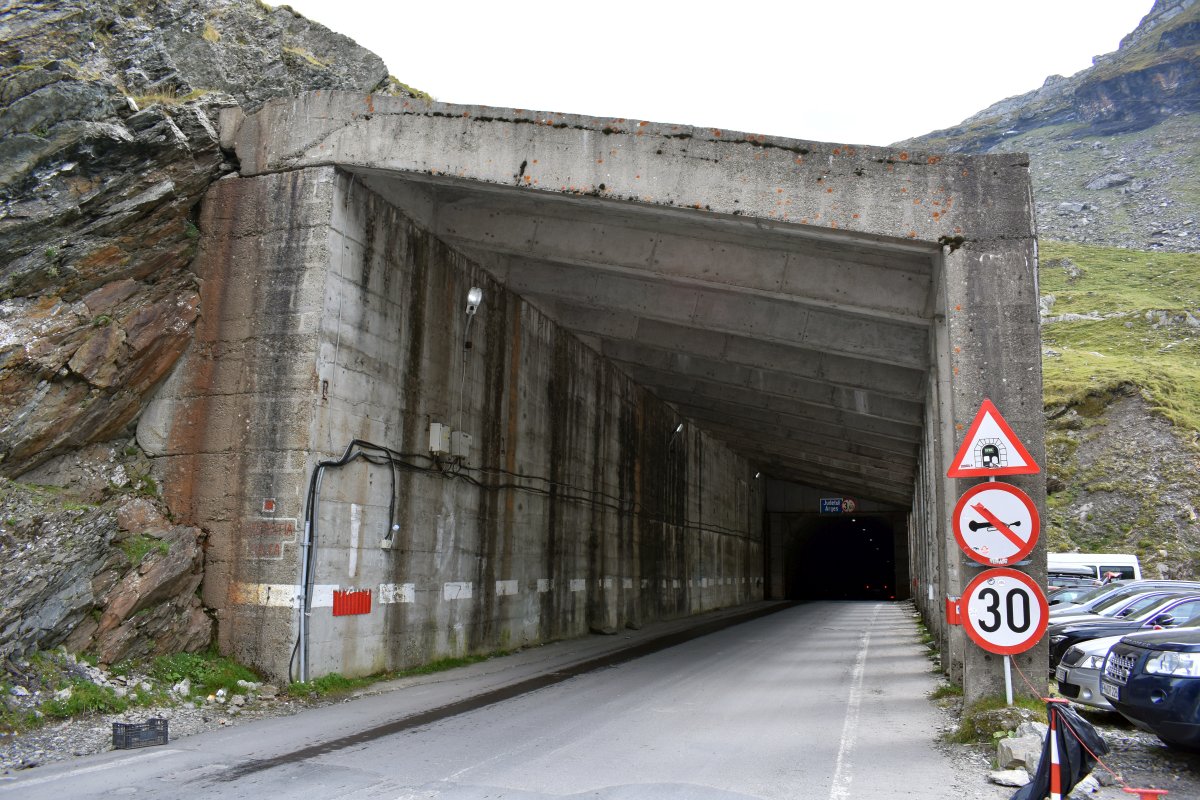
The market offers lots of local produce, fresh baked goods, souvenirs and even clothes. Prices are higher than usual, but so is the altitude and the buffalo cheese we got was superb, so can't complain much.
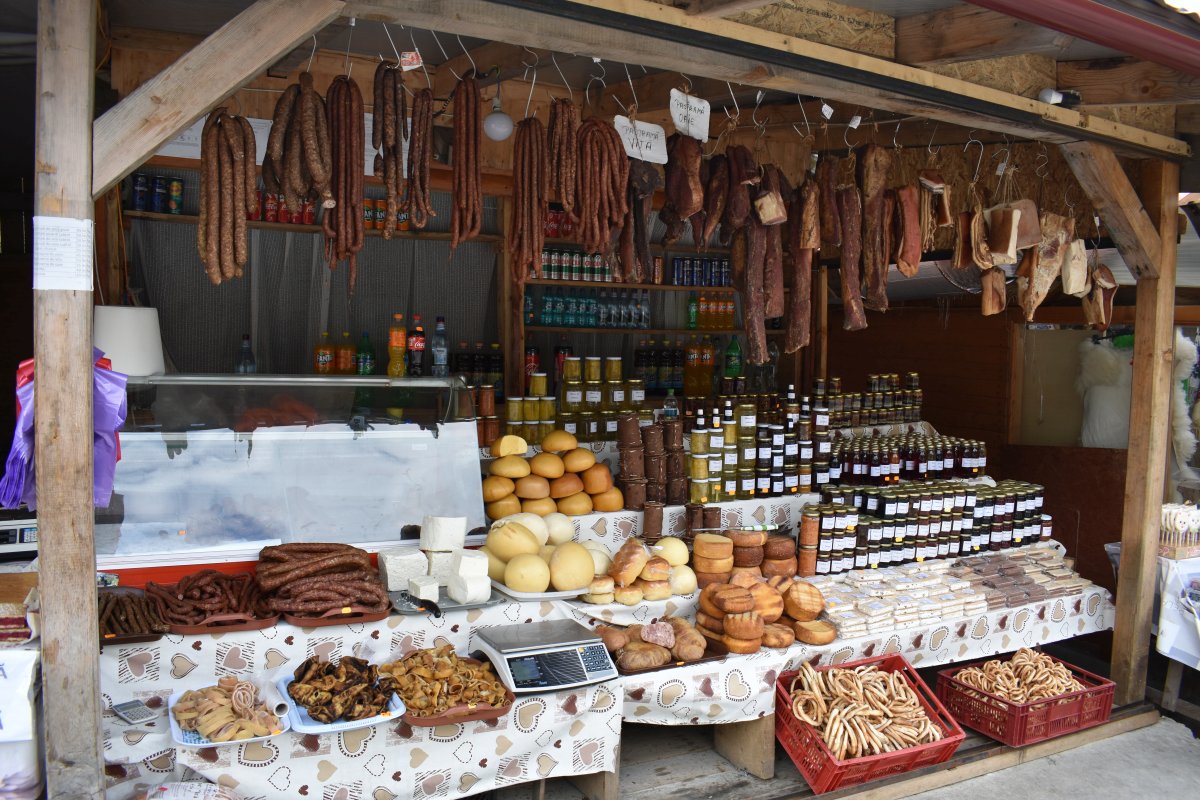
On the right side is Lake Balea, surrounded by bare rocky mountains and it is worth the drive even if it was the only thing to see there. The lake is a base for several high mountain hiking trails and has some accommodation options as well as restaurants serving overpriced food and drinks, also the cable car from Balea Waterfalls ends here.
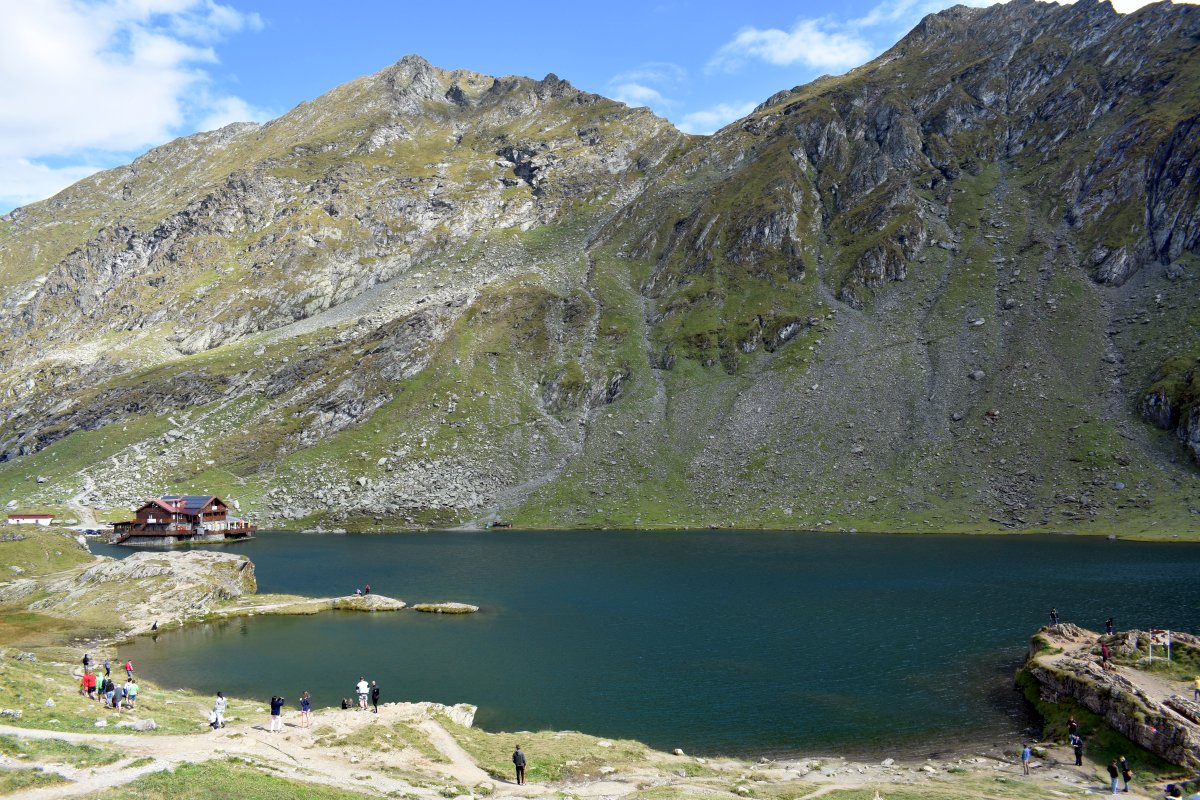
From the parking and the lake you can't miss a glass pyramid at the top of the highest hill - it is a great vantage point. As they charge 2 lei entrance per person and the windows are not perfectly clean I would recommend walking 20 meters to the right, there is a visible path that leads to an even better viewpoint.
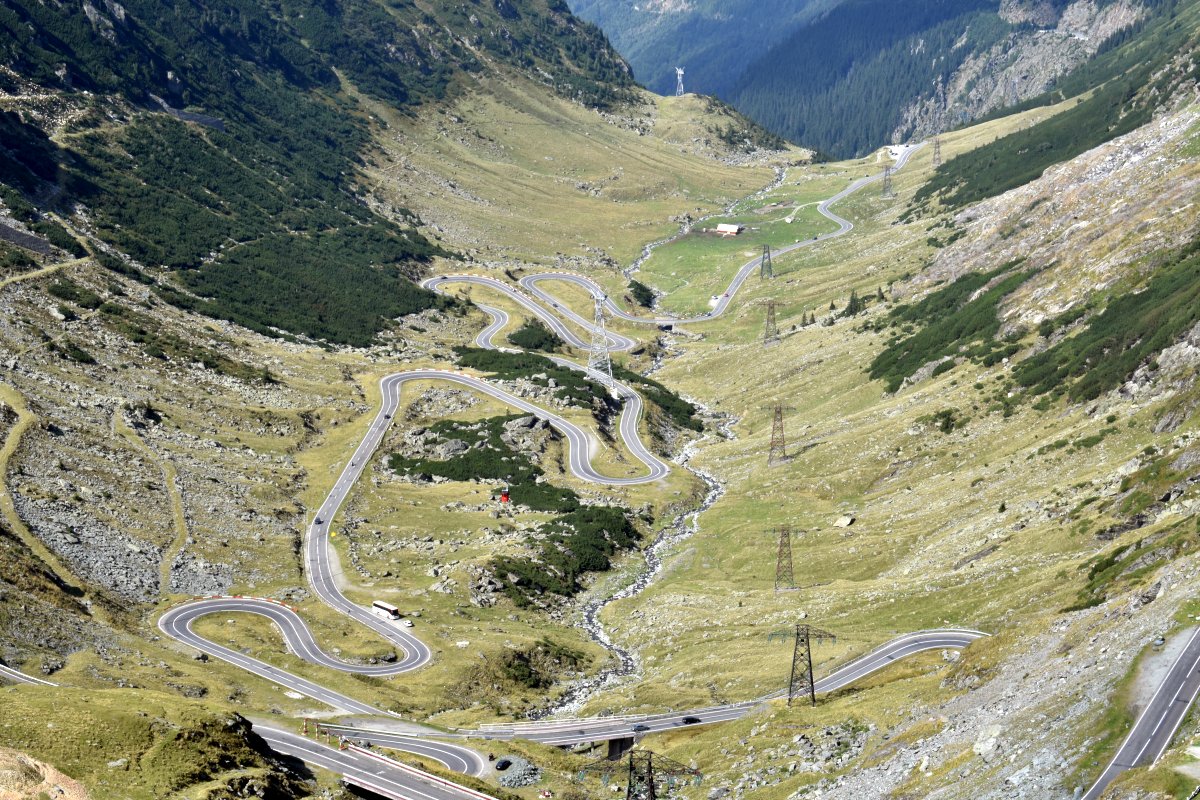
We were lucky to be there on a clear day and the whole valley was visible - a soft cradle between the mountains and the road twisting down the middle is a sight to remember. It was windy and cold, but we just sat there for a while and enjoyed the view - the red cable cars crawling up and down over the slowly moving cars, the peculiar road and the huge valley. Oh, and don't forget to snap a selfie!
The rest
We left the parking lot with a smile as it was time for the most exciting part of the driving - all the crazy turns we watched from above. This section of the road led us down the slope, then it slowly turns into an average mountain road.
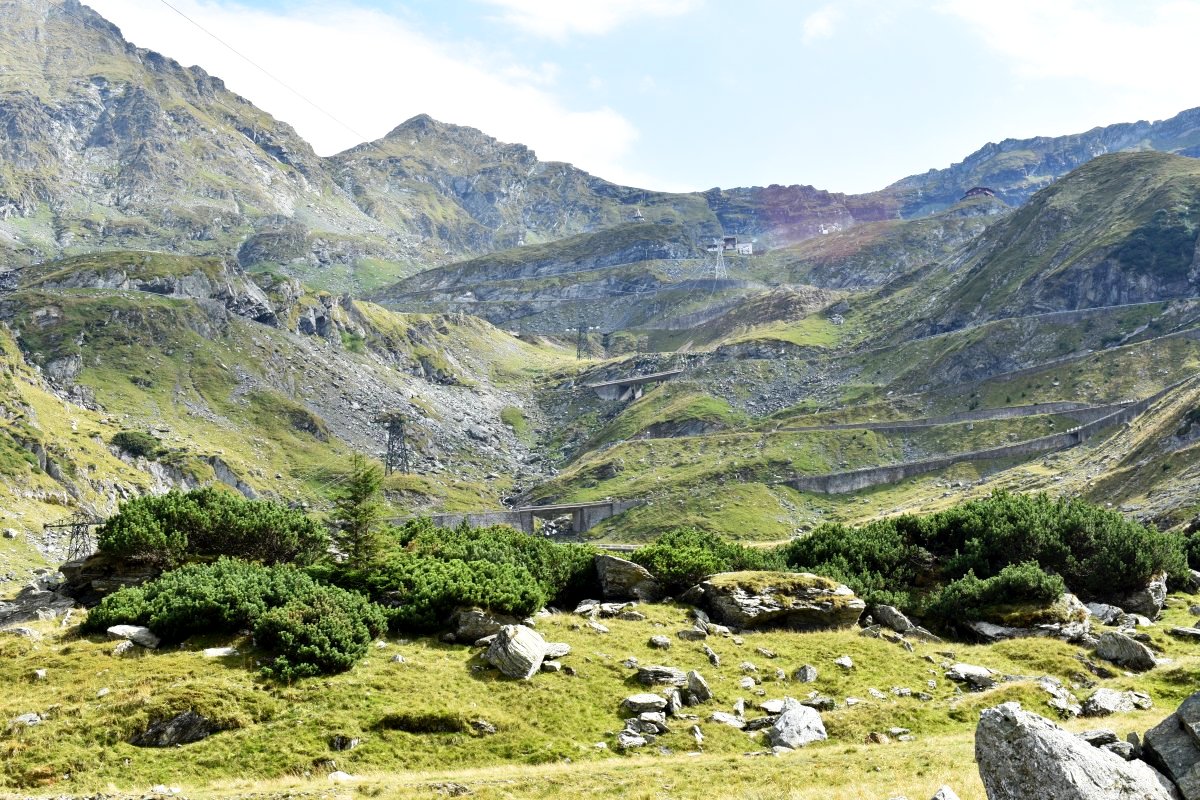
In about 7 km we reached the Balea Waterfalls - you can actually see the fall really well from the parking and we decided to skip the 2-hour trek as it was getting late.
Half an hour later the road gets to Cartisoara where the main attraction is a museum showing icons made of painted glass, by all reviews, it is worth a stop, unfortunately for us, it was closed by the time we got there.
Several kilometers past the town is an intersection with the main road (1), where going right will get you to Fagaras and Brasov, we continued left - to our hotel in Sibiu.
Comments